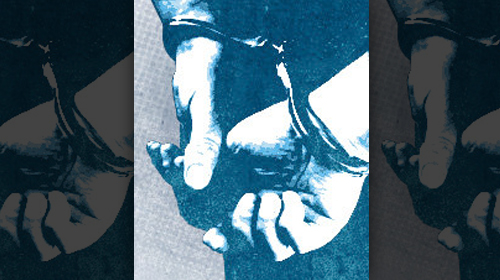
Skyrocketing corrections budgets have fixed state lawmakers' attention on the problem of mass incarceration, and smart reform ÔÇö reducing prison populations and spending while keeping communities safe ÔÇö is starting to happen. Nonetheless, some states have been slow to respond. In the early months of 2012, a number of states' chief justices told their legislators to wake up to the growing problem and suggested reforms that would be good for both budgets and public safety.
In most states, the chief justice addresses the legislature on the state of the judicial system with some regularity. The address, typically dubbed the "State of the Judiciary," is the judiciary's opportunity to address such matters as the effectiveness of new docketing procedures or the need for more judges and staff to handle increasing caseloads. This year, however, several states' top jurists chose to use the address to call for needed reforms.
In Georgia, Chief Justice Carol Hunstein that sentencing laws need to change: "Warehousing non-violent offenders who are addicted to drugs or are mentally ill does nothing to improve the public safety. Indeed, in the long run, it threatens it." She called on lawmakers to create drug courts, which , and to repudiate mandatory minimum sentences, which "[have done] little to reduce our three-year reconviction rate."
In Missouri, Chief Justice Richard Teitelman for the recommendations of the Missouri Working Group on Sentencing and Corrections, which recently released a in favor of alternatives to incarceration, such as drug treatment and good behavior incentives. Justice Teitelman lauded efforts to make "sentencing practices more cost-effective, helping Missouri to become both tough and smart on crime."
Similarly, Alaska's Walter Carpeneti to allow "'smart justice' principles to take hold." Tired of "rampaging prison growth," Justice Carpeneti advocated for "evidence-based practices" to guide sentencing, such as risk-assessments of offenders, and for new approaches to punishing probation violators and misdemeanants. "As we now know," said Justice Carpeneti, "the idea that jail time is the fitting response to every crime ÔÇö or even most crimes ÔÇö has become an expensive and possibly unnecessary proposition."
New York's Chief Justice Jonathan Lippman , calling it "high time [to] change the way the justice system responds to 16- and 17-year-olds accused of non-violent crimes." New York is one of only two states that prosecutes such youths as adults, a practice that Lippman says "flies in the face of what science tells us" about adolescents. Justice Lippman also called for new laws to reduce wrongful convictions, saying, "Even one wrongfully convicted person is one too many."
We know that alternatives to incarceration work, as evidenced by successful reforms in several states. Two justices used their addresses to celebrate such reforms in their own states. Indiana Chief Justice Randall Shepard the effectiveness of drug courts, veterans courts and new risk-assessment tools ÔÇö a "21st century evaluation technique" that Indiana used to tailor sentences for 134,000 offenders in 2011. Nebraska Chief Justice Michael Heavican the state's implementation of community-based supervision programs ÔÇö which are "far less expensive than incarceration" ÔÇö and drug courts, which has "saved families and saved lives."
And if we're talking about chief justices pressing for reform, we shouldn't overlook the recent by Pascal Calogero, Jr., the former chief justice of Louisiana. Calogero called for reforms to "restore citizens' confidence in our justice system," which has been tainted by prosecutorial misconduct in recent years. In order to eliminate the perverse incentives that lead prosecutors to suppress evidence that could exonerate defendants, Calogero recommends that lawmakers require openness in prosecutors' negotiations with witnesses and evidence-gathering.
State lawmakers request the assessments of their chief justices because states' top jurists have the expertise and experience to best appraise the strengths and weaknesses of the judicial system. When the voice of expertise issues a diagnosis that the system is broken, it's time to fix it.
Learn more about criminal justice reform: Sign up for breaking news alerts, , and .
